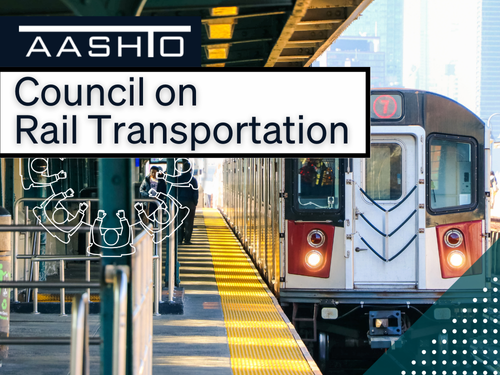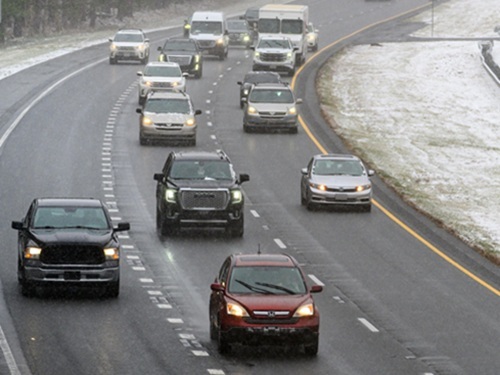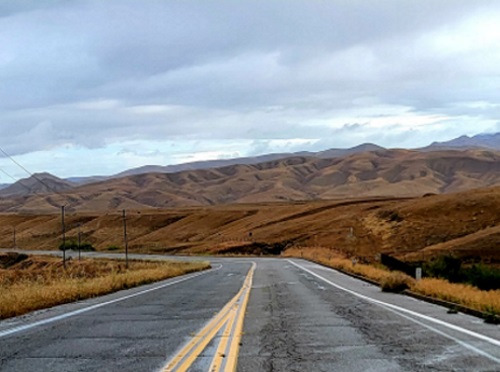The Federal Highway Administration recently issued $8.9 million to support 58 tribal transportation safety projects. That money is in addition to $120 million expected to flow to tribal governments in the coming years through the Tribal Transportation Program Safety Fund or TTPSF, which received a significant fiscal infusion from $1.2 trillion Infrastructure Investment and Jobs Act or IIJA enacted in November 2021.
[Above photo by the Cherokee Nation]
The IIJA increased the total funding authorized for the overall Tribal Transportation Program within the U.S. Department of Transportation – of which the TTPSF is a part – from $2.4 billion under the Fixing America’s Surface Transportation or FAST Act to $3 billion for fiscal year 2022 through 2026.

“There are projects that we know are the most likely to reduce fatalities and serious injuries and this historic funding opportunity aims to improve transportation safety in Tribal areas,” said Stephanie Pollack, FHWA’s deputy administrator, in a statement.
“Simple changes like adding rumble strips, better lighting, or clearer stop signs can and will save lives in communities across the country,” she noted.
[The complete list of grant recipients for FY 2021 is available at TTPSF FY2021 Grant Recipients.]
FHWA noted that among the recipients of this latest batch of tribal grants are 11 tribes that have not previously participated in the program and will receive funding to develop their first-ever transportation safety plans.
The agency added that, under the TTPSF, tribes could apply for funding at 100 percent federal share with no matching requirement to implement projects in four categories.

[Editor’s note: USDOT Deputy Secretary Polly Trottenberg traveled to the Cherokee Nation to participate in the signing of their first ever tribal transportation self-governance compact with Cherokee Nation Principal Chief Chuck Hoskin, Jr.]
Those categories are transportation safety plans; data assessment, improvement, and analysis activities; systemic roadway departure countermeasures; and infrastructure improvements such as intersection safety improvements, shoulder widening and pedestrian or bicyclist safety improvements.
FHWA noted these tribal grants build upon USDOT efforts to improve overall safety on all the nation’s roadways for all road users.
That effort includes funds for tribes through the new “Safe Streets and Roads for All” discretionary grant program that will provide $1 billion in FY 2022 to support regional, local, and tribal plans, projects and strategies that will prevent roadway deaths and serious injuries.
That program supports the USDOT’s National Roadway Safety Strategy and the goal of zero deaths and serious injuries on our nation’s roadway.
To further assist the 574 federally recognized tribes in addressing their transportation needs, FHWA has developed Transportation Funding Opportunities for Tribal Nations, a brochure that provides information on new highway programs created under the Bipartisan Infrastructure Law as well as existing highway and bridge transportation funding programs.
Additionally, Tribal Bridge Program Questions and Answers are available online at TTP Bridge Q&A.
 Nation
Nation
Registration Open for AASHTO’s Winter Rail Meeting
December 19, 2025 Nation
Nation

